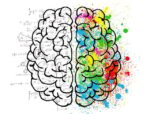History, if written only by victors, is an autobiography of dominance. But peel back its pages, and you’ll discover that the silent architects of transformation were often the ones left out of the frame—the socially averse, the emotionally atypical, the thinkers whose minds veered from the neurotypical freeway into roads less travelled. These “minorities”—not in census, but in sensibility—have long shaped the contours of our world.
The Unseen Crucible of Change
In every era, societal norms are cemented by the familiar, but challenged by the unfamiliar. The artist withdrawn from the crowd, the immigrant rewriting identity in a foreign tongue, the child who doesn’t play by playground rules—all form an invisible crucible from which radical ideas pour. What society often labels as “socially averse,” “eccentric,” or “difficult to place,” may in fact be society’s most honest mirror. These minorities do not disrupt merely for attention—they disrupt because they see what others have learned to ignore.
Cognitive Dissonance as Catalyst
Think of Kafka, Virginia Woolf, Alan Turing, Frida Kahlo. Not just brilliant—they were also fragmented, dissonant, profoundly misaligned with their times. And in that misalignment, they became lenses—distorted perhaps, but more capable of refracting unseen truths. The world they helped shape wasn’t made of polished surfaces; it was stitched from the jagged edges of their insight.
There’s an irony: the more one feels alienated by the mainstream, the more one grasps its hidden mechanisms. Social adversity breeds introspection. In the absence of belonging, the need to understand intensifies. This isn’t just survival—it’s blueprint-making.
From Margins to Mandates
Consider what begins at the margins often ends up as mainstream mandate. Civil rights, queer visibility, postcolonial discourse, neurodiversity advocacy—all birthed by those whose existence was once dismissed or erased. Their resilience didn’t just lead to inclusion; it reshaped the definitions of inclusion itself.
Even technological revolutions follow this arc. The open-source movement, disability tech, decentralized finance—all sparked not by incumbents but by outsiders who saw possibilities through constraint. The innovation born out of marginality isn’t accidental; it’s necessity coded with imagination.
Narratives of Empathy
Empathy itself is an invention often taught by the excluded. When you don’t assume you’re the center of the story, you learn to listen for the subplots. The socially quiet, the emotionally intense, the physically unassuming—these are often the writers of society’s most tender scripts. Not despite their marginality, but because of it.
Here, Newt Scamander steps into view—not with grandeur, but with grace. In a world obsessed with taming what it doesn’t understand, Newt chooses to understand what it refuses to tame. His love for magical creatures isn’t just zoological—it’s philosophical. He sees the misunderstood not as threats, but as truths wrapped in unfamiliar forms. “Worrying means you suffer twice,” he says—a line that reveals his quiet rebellion against fear-driven judgment.
Newt’s empathy isn’t performative. It’s instinctive. He doesn’t seek to fix the misunderstood; he seeks to know them. And in doing so, he becomes a mirror for how society might treat its own “creatures”—the emotionally intense, the socially withdrawn, the cognitively divergent—not with suspicion, but with curiosity.
A Future Authored by Minor Frequencies
We are entering an age where amplification of unheard frequencies may be our only path forward. Climate activism is led by teenagers with intense sensitivity. Social reformers speak in non-linear, emotionally charged prose. Memory is reshaped by communities that preserve oral histories over written declarations. The future doesn’t lie in homogeneity—it pulses in pockets of difference.
Let us redefine minorities—not as statistical slivers, but as vital forces of moral and imaginative correction. The socially averse are not absent from society; they are its conscience, whispering where others shout.
And if the world feels fractured, perhaps it’s because its hidden majority—the marginal thinkers, feelers, and observers—have yet to be fully heard. When they are, what emerges may not be unity, but harmony. Not sameness, but symphony.










